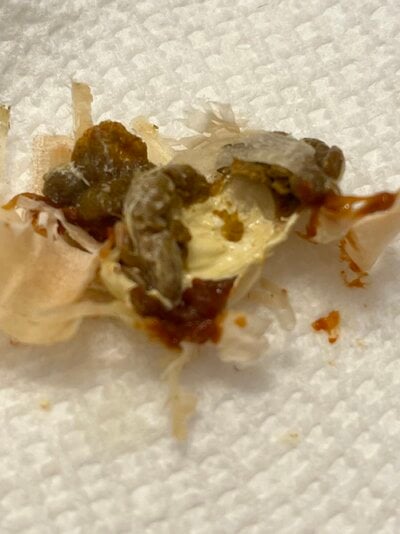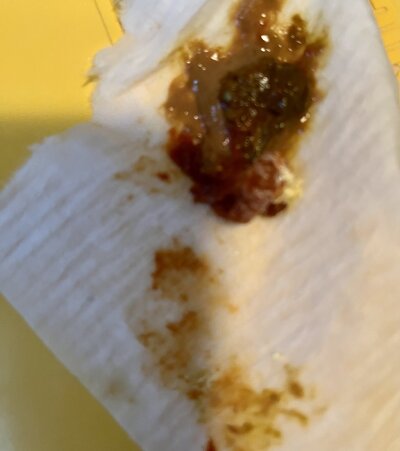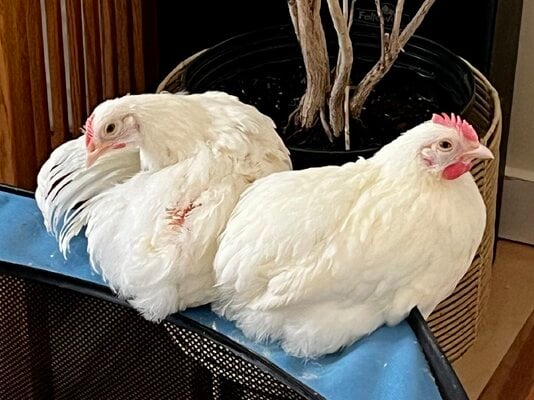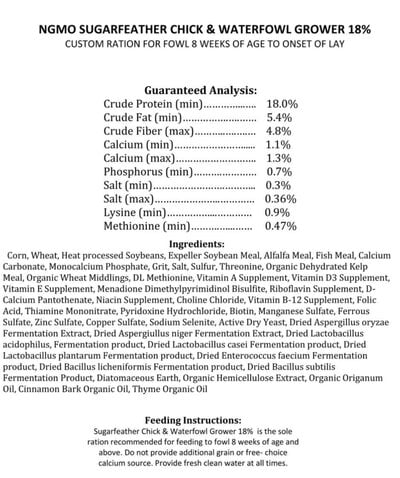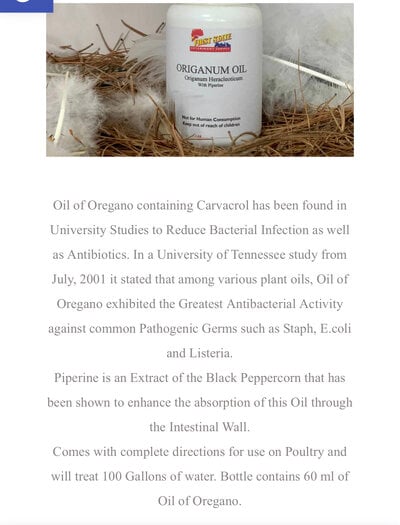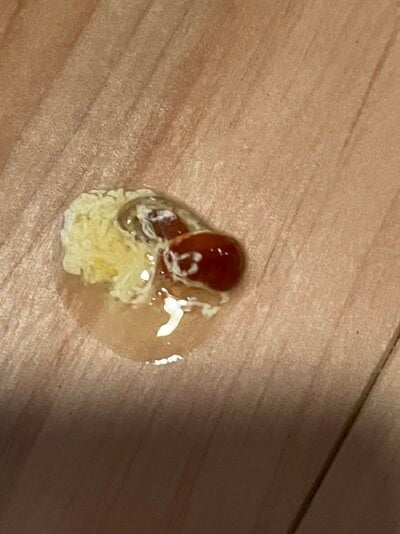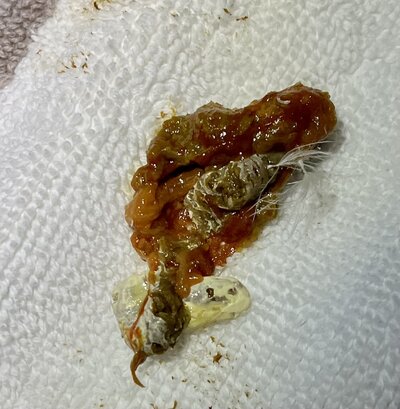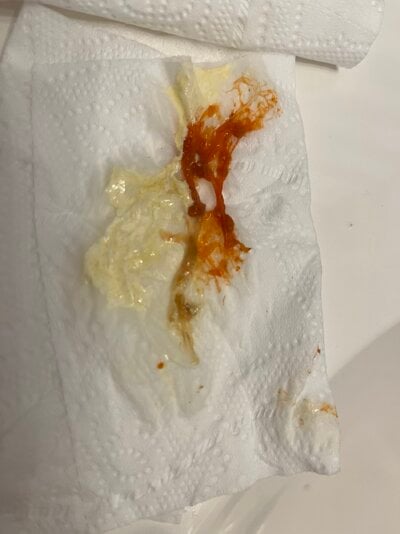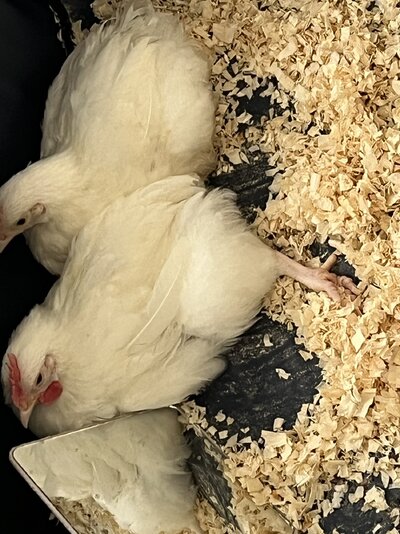Can someone help diagnose this mystery issue with my pair of new -indoor only pullet/cockerel? I have yet to hear anything from the breeder and I’m very worried. I ordered older birds specifically to avoid hatchery issues this time 
I ordered a mature pair of orpingtons bantams that arrived 2wks ago at approx 2-2.5months of age. They were placed directly from shipping box into a clean brooder pen with grower feed and oregano water brands from the farm they were raised and shipped. The first picture is from their very first morning here. And since they arrived multiple droppings with intestinal lining are produced each morning. These birds could not have contracted a parasite HERE so quickly. I took the probiotic chick grit away immediately as the first droppings were just filled with it. That was 2 weeks ago. Unless there is something wrong with the feed they sent (they have their own blend made) I’m not sure how they could have injested something that continues to irritate.
Treatments-yes I tried corrid in fact just finished the course the day before the second photo. The video is of the pair this morning. They don’t act sick and the male has started to crow.
Has anyone seen this before? Absent any response from the breeder, what can I do? I do have Corrid. Tontrazil, metronidazole, enrofloxin, bacitracin, (2 other antibiotics but not in a form I can dose) and valzaban wormer in my bed kit.
Yes there is avian vet 1.5hrs away and it’s $150 per bird for mandatory exam and in house fecal. Sending out to a lab is $80 and 5days. That said I’ve never once in 16 fecals on other birds got a positive result even though twice I saw worms come out and saw Protozoa under my own microscope…so I’m not sure about the trip and expense for these two.
I ordered a mature pair of orpingtons bantams that arrived 2wks ago at approx 2-2.5months of age. They were placed directly from shipping box into a clean brooder pen with grower feed and oregano water brands from the farm they were raised and shipped. The first picture is from their very first morning here. And since they arrived multiple droppings with intestinal lining are produced each morning. These birds could not have contracted a parasite HERE so quickly. I took the probiotic chick grit away immediately as the first droppings were just filled with it. That was 2 weeks ago. Unless there is something wrong with the feed they sent (they have their own blend made) I’m not sure how they could have injested something that continues to irritate.
Treatments-yes I tried corrid in fact just finished the course the day before the second photo. The video is of the pair this morning. They don’t act sick and the male has started to crow.
Has anyone seen this before? Absent any response from the breeder, what can I do? I do have Corrid. Tontrazil, metronidazole, enrofloxin, bacitracin, (2 other antibiotics but not in a form I can dose) and valzaban wormer in my bed kit.
Yes there is avian vet 1.5hrs away and it’s $150 per bird for mandatory exam and in house fecal. Sending out to a lab is $80 and 5days. That said I’ve never once in 16 fecals on other birds got a positive result even though twice I saw worms come out and saw Protozoa under my own microscope…so I’m not sure about the trip and expense for these two.
Attachments
Last edited:

